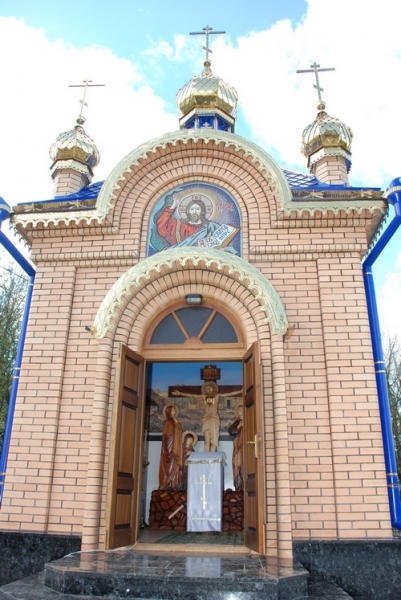Throughout history, stories of gods, heroes, and cosmic battles have captivated human imagination. These ancient narratives, especially those from Greek mythology, continue to serve as a profound source of inspiration for contemporary entertainment, including video games and slot machines. By integrating mythological themes, game developers tap into a rich cultural tapestry that offers both excitement and educational value, creating immersive experiences that resonate with players worldwide.
This article explores how Greek mythology shapes modern game design, illustrating the enduring legacy of these ancient stories and their relevance in today’s digital entertainment landscape.
- Foundations of Greek Mythology and Its Cultural Significance
- Educational Value of Greek Myths in Modern Media
- Transition from Ancient Myths to Modern Game Design
- Case Study: Le Zeus – A Modern Illustration of Greek Myth Inspiration
- The Evolution of Mythological Elements in Slot and Video Games
- Non-Obvious Aspects of Mythology in Modern Gaming
- Future Trends: How Greek Mythology Continues to Shape Game Themes
- Conclusion: The Enduring Legacy of Greek Mythology in Modern Gaming
Foundations of Greek Mythology and Its Cultural Significance
Greek mythology comprises a vast collection of stories about gods, demigods, heroes, and cosmic phenomena. These myths served to explain natural events, human struggles, and societal values. For example, tales of Zeus, the king of gods, or Hercules, the hero known for his strength, are central to understanding Greek cultural identity.
Historically, these myths were transmitted orally before being recorded in literary works such as Hesiod’s Theogony and Homer’s Iliad and Odyssey. They played a vital role in shaping religious practices, festivals, and moral codes, embedding themselves deeply into the fabric of Greek society.
Over centuries, these stories have evolved, adapting to new cultural contexts while retaining their core themes. Today, they continue to inspire countless forms of media, including modern gaming, where they serve as a fertile ground for storytelling and visual design.
Educational Value of Greek Myths in Modern Media
Greek myths are more than mere entertainment; they are educational tools that teach moral lessons, cultural history, and philosophical ideas. For instance, the myth of Prometheus, who stole fire for humanity, symbolizes rebellion and enlightenment, prompting players to reflect on themes of sacrifice and knowledge.
Historically, scholars like Hesiod documented these stories, ensuring their preservation for future generations. Modern media often leverage these narratives to deepen engagement, encouraging players to explore ancient cultures through interactive storytelling.
Understanding these myths enriches players’ experiences, providing context and depth that elevate simple gameplay into a meaningful cultural exploration. This approach not only entertains but also educates, fostering a greater appreciation for the origins of Western storytelling traditions.
Transition from Ancient Myths to Modern Game Design
Game developers adapt mythological themes into narratives that resonate with contemporary audiences. For example, the heroic journeys of Greek heroes like Perseus or Odysseus provide templates for character development and plot structures in modern games.
Mechanically, these themes influence game aesthetics and mechanics. Greek gods often inspire awe through divine powers, which are translated into special abilities or bonus features in video slots and role-playing games.
Characters designed with mythological inspiration tend to embody archetypes familiar to players, such as the wise mentor or the formidable antagonist. This connection creates a sense of familiarity while allowing for creative reinterpretation, exemplified by titles like myth meter fills at 25, which showcases how modern games incorporate ancient themes seamlessly.
Case Study: Le Zeus – A Modern Illustration of Greek Myth Inspiration
Overview of Le Zeus as a Game Product
Le Zeus exemplifies how contemporary slot games harness Greek mythological themes to create engaging experiences. It features visual motifs like laurel wreaths, thunderbolts, and Mount Olympus, immersing players in a divine realm.
Incorporation of Greek Myth Themes
The game’s mechanics reflect mythological narratives—such as cascading symbols representing the flow of divine power, or bonus rounds inspired by hero quests. These elements deepen the thematic coherence, making the gameplay both entertaining and educational.
Paraphrasing and Naming Trends Post-2022
Post-2022, game titles and features increasingly reference mythological concepts with modern language, emphasizing creative reinterpretation. Words like “divine,” “epic,” or “mythic” are paired with contemporary terms, illustrating how the myth’s essence is preserved while appealing to a new generation of players.
The Evolution of Mythological Elements in Slot and Video Games
| Theme | Game Type | Features |
|---|---|---|
| Egyptian | Slot | Sticky respins, hieroglyphic symbols |
| Greek | Slot & Video | Divine powers, hero quests, mythic symbols |
Over time, mythological motifs have transitioned from simple decorative elements to integral mechanics—such as bonus rounds based on mythic battles or symbols representing divine authority—creating richer gameplay experiences. Cultural authenticity remains vital, but modern reinterpretation allows for creative freedom, ensuring myths stay relevant and engaging.
Non-Obvious Aspects of Mythology in Modern Gaming
Beyond straightforward storytelling, myths are often subverted or reinterpreted in innovative ways. For instance, some games challenge traditional hero narratives, exploring darker or more complex characters inspired by mythological figures.
Symbols like the ouroboros or the labyrinth carry deeper meanings about eternity or complexity, which developers incorporate into game design to evoke subconscious associations. These symbols can enhance the psychological impact, fostering deeper engagement and reflection from players.
Such reinterpretations also have educational benefits, prompting players to question and analyze mythic archetypes, ultimately enriching their understanding of ancient stories and their modern applications.
Future Trends: How Greek Mythology Continues to Shape Game Themes
Emerging storytelling techniques, such as interactive narratives and augmented reality, are increasingly drawing from mythological sources. These methods allow players to actively participate in mythic worlds, experiencing stories from multiple perspectives.
Paraphrasing and modern storytelling trends help reframe ancient myths in accessible language, making them appealing to younger audiences without losing their depth. This approach fosters a dynamic dialogue between the past and present.
Innovations could include entirely new myth-based game concepts—like multiplayer adventures centered around the Greek pantheon—ensuring that ancient stories remain a vital part of future entertainment.
Conclusion: The Enduring Legacy of Greek Mythology in Modern Gaming
“Ancient stories continue to inspire, teach, and entertain—proof that their themes are timeless, adaptable, and universally compelling.”
From their origins in oral tradition to their modern incarnations in video games and slots, Greek myths serve as a bridge connecting past and present. They provide a rich cultural depth that enhances storytelling, gameplay mechanics, and visual design.
As technology advances, the potential for myth-inspired games expands. Whether through immersive storytelling or symbolic reinterpretation, the legacy of Greek mythology remains vital in shaping the future of digital entertainment.
For those interested in experiencing how these ancient stories are reimagined today, exploring titles like myth meter fills at 25 offers a glimpse into the seamless integration of myth and modern game design.















